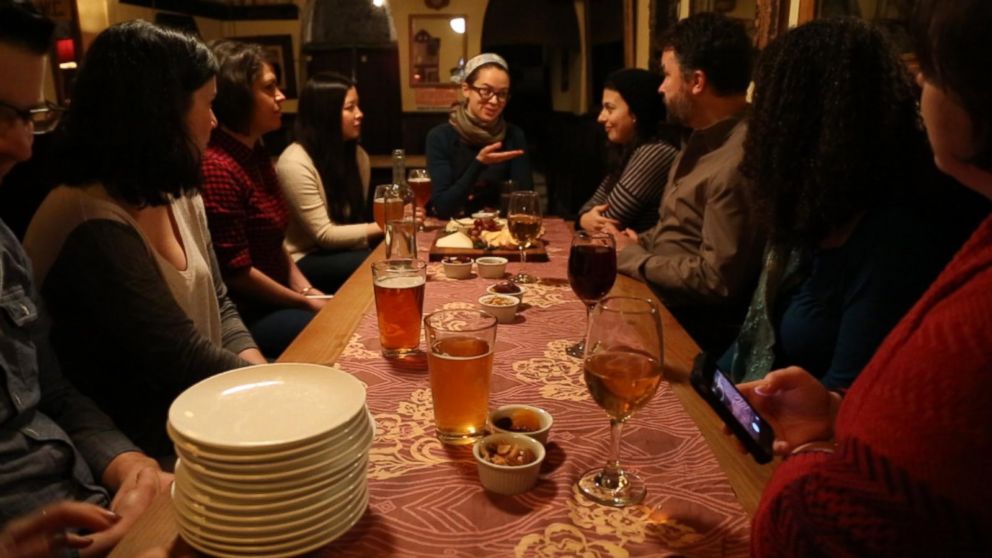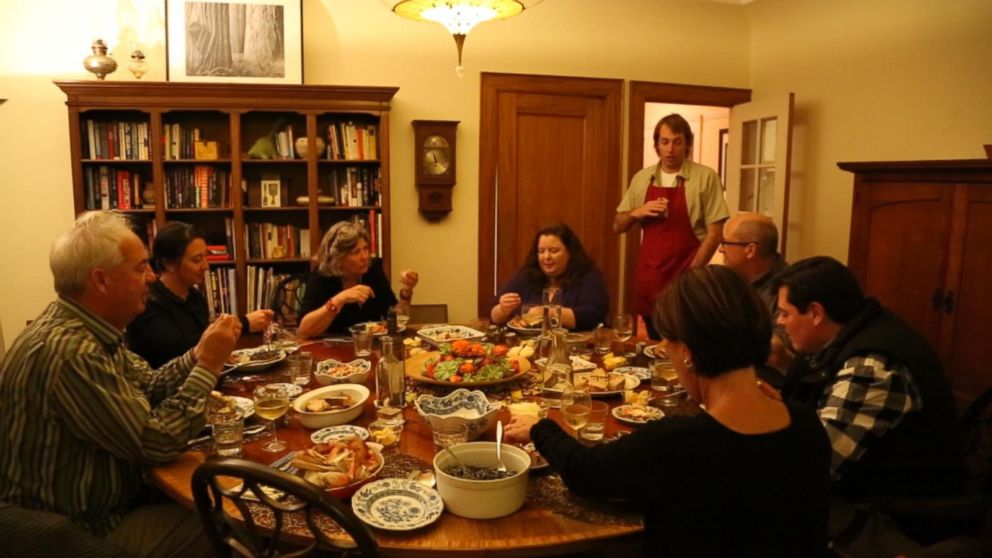Aspiring Chefs Cook for Strangers With New Meal-Share Apps
— -- Don Mayfield is hunting for the perfect Dungeness crabs at San Francisco’s famous Fisherman’s Wharf, because in 12 hours, eight hungry foodies are coming over to his house for dinner.
Across the country in New York City, Pamela Brewer scrambles to get ready to serve a dozen strangers a cheese-themed brunch.
Mayfield and Brewer are not restaurateurs. They are among the hundreds of home cooks in the U.S. selling seats at their own dinner tables and hosting gourmet meals for strangers who sign up online.
It’s part of a growing trend being called the “AirBnB of food,” because like the house-sharing website, apps like Feastly, Eatwith and Cookapp take a 15 to 20 percent cut to connect passionate chefs with adventurous eaters, who can choose from a variety of cuisines and pay less-than-restaurant prices.
“I’ve never had a cooking class,” Mayfield said. “I have no professional cooking experience. Just these past few years I’ve had a big interest in food and I wanted to do more cooking. I’ve always been kind of anti-boss. I want to do my own thing.”
Mayfield, 26, is a fish monger and part time surfer. He dreams of one day opening his own restaurant, but the food business is risky business: time-consuming and expensive for aspiring chefs. Some are turning to apps like Feastly as a sort of low-risk way of testing out their chops.
Mayfield used EatWith to offer a San Francisco-themed dinner: clam chowder, sourdough bread to start. “The main course is half a crab steamed cause that’s in season now, squid ink pasta with cream and herb sauce and then we have a home-made corn bread stuffing that I made with local chorizo.”
He charged $55 a head for a tricked out 5-course meal– a steal for if the same courses were served in a restaurant.
Still learning, Mayfield relies heavily on trial and error. “I don’t like to disappoint people,” he said. “I’m kind of a perfectionist, you know? I’m inexperienced, but I want everything to go perfect and like smoothly.”

As for Brewer, 29, she decided to host a cheese-themed brunch for $30 a head, with a quiche as one of her main dishes. Brewer quit her day job at a non-profit and is focused now on becoming a TV chef so she has a lot riding on these meals.
“As much as I was there every day working behind the computer, what I was dreaming about is what I would be cooking that night, what I would be cooking for friends over the weekend,” she said of her decision to leave her non-profit job.
Brewer used Feastly to set up her meal, and said her experiences with the app have been invaluable.
“It’s really helped me find my voice and open up exposure to a larger audience,” she said.
There are 990,000 licensed restaurants in the United States, bringing in over $680 billion in sales each year, and these new in-home restaurants are looking to grab a piece of the pie. AirBnB alone has already cornered five percent of the budget hotel business -- and it is growing.
But like other shared-economy services such as AirBnB and Lyft, the growing business of home cooking for strangers is uncharted territory. Health regulations and restrictions vary from one city to another.
For example, in many cities, home-based restaurants are not eligible for food service permits and run the risk of being shut down.
Noah Karesh, the founder and CEO of Feastly, said his app is about connecting people and culture.
"We're saying the dinner table is the original social network and we’re having all these shared experiences so why not do it together," Karesh said.
In the age of peer-to-peer commerce, Karesh said, what defines a “restaurant” is changing. Given that, Karesh said they vet all the cooks who use their app to host meals, “and that’s everything from going all the way to tasting their food and seeing where it’s prepared,” he said.
While Mayfield and Brewer are still starting out, some chefs who have used the apps for a while are creating buzz online and cashing in. Marco Maestoso and Daliala Eroclani have been hosting gourmet Italian dinners in their New York City home since June, but said they’re already turning a profit.
“Now we’re doing two to three dinners a week and we’re getting a full house every time,” Eroclani said.
“I love the [customers] from the websites,” Maestoso said, adding that they will keep using the apps to “try to build our own personal brand.”




